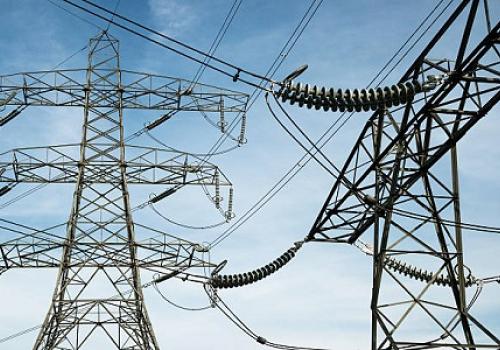The Southern African Development Community (SADC) Secretariat, through the Directorate of Infrastructure, convened the first SADC Electricity Working Group (EWG) on 2nd November 2021 to advance the SADC regional integration agenda through enhancing security of energy supply in the Region.
The workshop, convened under the Chairpersonship of the Ministry of Energy of the Republic of Malawi, follows the identification of gaps, risks and challenges on 19 regional priority energy projects by SADC Secretariat, with technical assistance from Southern African Power Pool-Accelerating Regional Energy Projects (SAPP-AREP), at the Regional Technical Workshop in April 2021 where it was recommended that one of key activity should be regular engagement of Member States to determine and address policy issues hindering progress of the projects.
The development of SADC energy programmes contributes greatly to regional integration, including in industrialisation, environmental protection, socioeconomic development and reduction of poverty in the Region.
The main objective of the EWG is to highlight and action the policy level impediments within the regional energy projects. The EWG will facilitate formulation of policies and strategies aimed at fast tracking preparation of regional energy infrastructure projects. The EWG will also help to identify policy-level impediments that regional energy projects are facing at early stage and thereafter, crafting roadmaps and specific actions to be implemented by the Member States and the SADC Secretariat.
The workshop noted that SADC has a number of projects whose implementation would eliminate power deficit in the Region. There are 19 projects at different stages of development in the Region. The Terms of References of the EWG spell out six pillars on which it is built and which will support the acceleration of Regional Energy Projects.
Pillar 1 is on strategic interventions; pillar 2 deals with self-financing; pillar 3 covers aggregation of SADC projects into a dashboard; pillar 4 is on training and capacity building; pillar 5 deals with aggregation of projects in SADC focusing on the status on the early warning system; and pillar 6 is on maintaining a database with qualified inputs.
The workshop focussed on pillar 1 that will support the EWG. This first pillar focuses on Inter-Governmental Memorandums of Understanding (IGMOUs). Participants to the workshop engaged on the situation regarding updating the Member States on the status of the remaining IGMOUs of the four projects namely the Inga 3 Transmission Project (Democratic Republic of Congo (DRC), Botswana, South Africa, Zambia and Zimbabwe; the Solwezi-Kolwezi Project (DRC and Zambia); the Mota Project (Mozambique and the United Republic of Tanzania; and the Luapula hydropower project (DRC and Zambia.
It was evident that the last three projects have their IGMOUs and are in implementation phase, whilst the only project lacking any traction with regards to an IGMOU is project 1 namely Inga 3 Transmission project. In addition, it was also found that some projects, although having IGMOUs in place, have not formed the governance structures to assist the projects to move forward. This will also be dealt with for the second EWG in 2022.
Participants deliberated on the rationale for initially focussing on four or five out of the 19 regional energy projects; whether the EWG will have the mandate to assist funders in financial close and whether this will be a direct role or rather a facilitation role; the need to have tax emption on grant funded projects; for projects during the preparation phase to have perpetual time periods in existence for the IGMOUs/Ever Green; and lastly the issue of non-existent governance structures in executed and live IGMOUs.
The workshop also noted that the Inga 3 project requires the signing and implementation of IGMoU and the implementation of these for interconnector projects. However, there are issues that need immediate attention after which a solution is framed around a roadmap and the setting up a Joint Commission and Ministerial Committee.
The joint IGMOU for Luapula and Solwezi-Kolwezi project needs an IGMoU to be extended. It was noted that it would help SADC if IGMoUs are not signed only for a limited period of time given that issues may not be fully implemented during that time. This is currently in implementation phase.
The IGMOU on Mozambique-Tanzania (MOTA) project has been signed and the notable project requiring engagement of Ministries of Energy is the Inga 3 Transmission project.
Workshop participants deliberated on the scope of work for the EWG which involves looking at policy level impediments, individual roadmaps and the specific actions to be implemented; ensuring sanctioning of the relevant authorities and powers that should help accelerate implementation of projects; and reporting to the SADC implementation and financial forum on a quarterly basis
The issue of climate change also came under discussion as this is bound to affects all projects, either by creating opportunities or problems for the Region. It was agreed that a regional approach needs to be taken to address the issue of climate change and its impact on power projects. The EWG would therefore play a pivotal role to explore this regional approach on climate change and its impacts on power projects.

